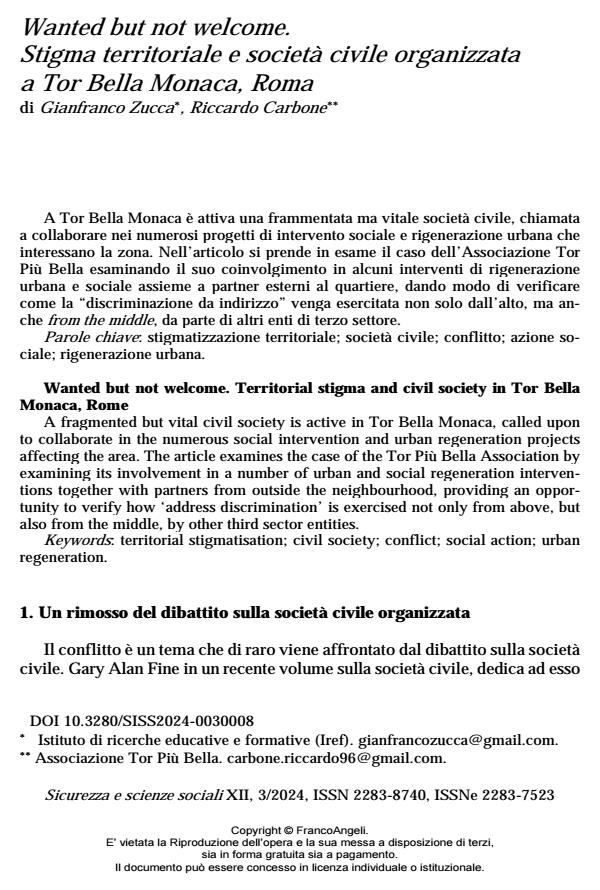Wanted but not welcome. Territorial stigma and civil society in Tor Bella Monaca, Rome
Journal title SICUREZZA E SCIENZE SOCIALI
Author/s Gianfranco Zucca, Riccardo Carbone
Publishing Year 2024 Issue 2024/3
Language Italian Pages 12 P. 91-102 File size 97 KB
DOI 10.3280/SISS2024-003008
DOI is like a bar code for intellectual property: to have more infomation
click here
Below, you can see the article first page
If you want to buy this article in PDF format, you can do it, following the instructions to buy download credits

FrancoAngeli is member of Publishers International Linking Association, Inc (PILA), a not-for-profit association which run the CrossRef service enabling links to and from online scholarly content.
A fragmented but vital civil society is active in Tor Bella Monaca, called upon to collaborate in the numerous social intervention and urban regeneration projects affecting the area. The article examines the case of the Tor Più Bella Association by examining its involvement in a number of urban and social regeneration interventions together with partners from outside the neighbourhood, providing an opportunity to verify how ‘address discrimination’ is exercised not only from above, but also from the middle, by other third sector entities.
Keywords: territorial stigmatisation; civil society; conflict; social action; urban regeneration.
Gianfranco Zucca, Riccardo Carbone, Wanted but not welcome. Stigma territoriale e società civile organizzata a Tor Bella Monaca, Roma in "SICUREZZA E SCIENZE SOCIALI" 3/2024, pp 91-102, DOI: 10.3280/SISS2024-003008